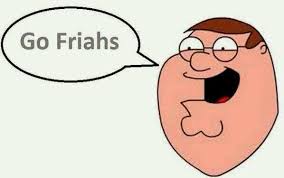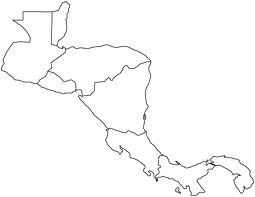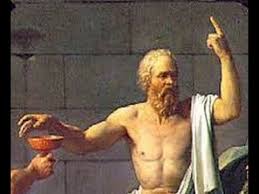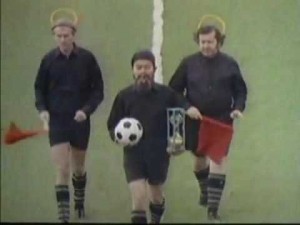For most sports fans, this time of year is exciting. The baseball playoffs just started, the NFL season is only four weeks old . . . there are wall-to-wall opportunities to binge watch just about every day of the week.
Not for me this fall, though. My beloved Red Sox missed the playoffs by finishing last in their division for the third time in four years, and my almost-as-beloved Patriots have started the season 1-3, including being blown out in embarrassing fashion by the hated Cowboys last Sunday. Not a whole lot of sports energy for me until the middle of November when the Providence Friars’ season begins. With many new players and a new coach, expectations are sky high. Hope always springs eternal at the beginning of a new season.
 My students have always been surprised when they learn that their philosophy professor is a huge Friars fan, never missing a home game (my section is just to the right of the student section) and capable of dropping F-bombs on the refs and opposing players with the best of them. What my students (and just about everyone else) don’t realize is that one of the greatest sporting events in the history of anything involved philosophers. Really.
My students have always been surprised when they learn that their philosophy professor is a huge Friars fan, never missing a home game (my section is just to the right of the student section) and capable of dropping F-bombs on the refs and opposing players with the best of them. What my students (and just about everyone else) don’t realize is that one of the greatest sporting events in the history of anything involved philosophers. Really.
I am not a big soccer fan. But I very well might be if world-class soccer got the same 24-7 air time in the US as baseball, American football, basketball or hockey. I have never played soccer, probably because its only appearance in the northern Vermont of my youth was a week during the late winter/early spring in Phys Ed when the instructor had run out of things with which to make our lives miserable. I grew up fifty years too early, apparently, sinceyouth soccer is huge nowadays. There was no such thing in my youth.
 About the only time I ever watch soccer is during the World Cup. Two or three World Cups ago, the first full game that I watched was Costa Rica vs. Greece. That’s one of the many cool things about the World Cup—countries that get very little face time in the news or anywhere else all of a sudden have their 90 minutes (or more) in the sun. I’m pretty good with my geography, but I would have had to think for a moment before picking Costa Rica out of a map of Central America lacking the names (at least I know it’s in Central America). I do know that it was the last of the Central American countries to visit my blog (after El Salvador, Guatemala, Honduras, Belize, Nicaragua and Panama). Not that I’m obsessed with my blog stats or anything.
About the only time I ever watch soccer is during the World Cup. Two or three World Cups ago, the first full game that I watched was Costa Rica vs. Greece. That’s one of the many cool things about the World Cup—countries that get very little face time in the news or anywhere else all of a sudden have their 90 minutes (or more) in the sun. I’m pretty good with my geography, but I would have had to think for a moment before picking Costa Rica out of a map of Central America lacking the names (at least I know it’s in Central America). I do know that it was the last of the Central American countries to visit my blog (after El Salvador, Guatemala, Honduras, Belize, Nicaragua and Panama). Not that I’m obsessed with my blog stats or anything.
When watching the World Cup, I tend to favor the small, lesser known countries unless I have a vested interest, so I was pulling for Costa Rica. And sure enough, they won a nail-biter with a 5-3 advantage in penalty kicks after 90 minutes of regulation and 30 more minutes of extra time produced a tie. Soccer purists don’t like penalty kicks, but they provide a guarantee that the game won’t last twelve hours or more and are very exciting. The best part of the Costa Rica-Greece contest, though, was this accolade tossed by the announcer to a Costa Rican defender: “He did a great job of holding off Socrates.”
 How to hold Socrates off is something Thrasymachus, Euthyphro, Glaucon, Adiemantus, Laches and any number of other Socrates-abused conversants in Plato’s dialogues would have loved to learn, I suspect. Athenians eventually decided that the only foolproof way to hold off Socrates was to kill him, which turned out to be a good career move for Socrates since he is now generally considered to be the godfather of Western philosophy.
How to hold Socrates off is something Thrasymachus, Euthyphro, Glaucon, Adiemantus, Laches and any number of other Socrates-abused conversants in Plato’s dialogues would have loved to learn, I suspect. Athenians eventually decided that the only foolproof way to hold off Socrates was to kill him, which turned out to be a good career move for Socrates since he is now generally considered to be the godfather of Western philosophy.
Fans of the Monty Python Flying Circus know where I am going with this. One of the greatest Monty Python skits from the seventies (my personal favorite) is the soccer match between German and Greek philosophers. The Greek squad, captained by Socrates, includes Aristotle, Empedocles, Sophocles, Heraclitus, Epictetus, Archimedes, Plotinus, Epicurus, Democritus, and Plato in goal. The German team is captained by Hegel, who is joined by Wittgenstein, Kant, Schopenhauer, Schelling, Beckenbauer (“bit of a surprise, there”), Jaspers, Schlegel, Nietzsche, and Leibniz in goal, with Marx coming off the bench in the second half for Wittgenstein.  The Greeks play in togas, while the Germans are attired in various period costumes and wigs. The head referee is Confucius, who is keeping time with an hourglass. He is joined by Augustine and an appropriately portly Aquinas, both sporting halos.
The Greeks play in togas, while the Germans are attired in various period costumes and wigs. The head referee is Confucius, who is keeping time with an hourglass. He is joined by Augustine and an appropriately portly Aquinas, both sporting halos.
As one might expect, nothing happens at the opening whistle other than the twenty-two philosophers wandering around the field individually or in pairs thinking hard and/or explaining the fundamental precepts of their philosophies to anyone within earshot. The first half ends in a scoreless tie; early in the second half there is a bit of excitement when Nietzsche accuses head referee Confucius of having no free will and Confucius responds by giving Nietzsche a yellow card. Marx substitutes for Wittgenstein later in the half, but accomplishes little. 
Then in the eighty-ninth minute, Archimedes has one of his classic “Eureka!” moments and decides to do something with the ball. In quick succession, the ball is passed from Archimedes to Socrates back to Archimedes to Heraclitus to an obviously offside Empedocles on the wing to Socrates who sends a beautiful header past the helpless Leibniz into the net.
While the elated Greeks run around in joyful celebration, the Germans are outraged. “Hegel is arguing that the reality is merely an a priori adjunct of non-naturalistic ethics, Kant via the categorical imperative is holding that ontologically it exists only in the imagination, and Marx is claiming it was offside.” But to no avail. The final grains of sand run through Confucius’ hourglass and the Greeks win. As they should—they are the fathers of Western philosophy, after all.
Had the German philosophers only been able to find a Costa Rican philosopher to play defense for them, they might have been able to hold off Socrates.
Greek vs. German philosophers soccer match












